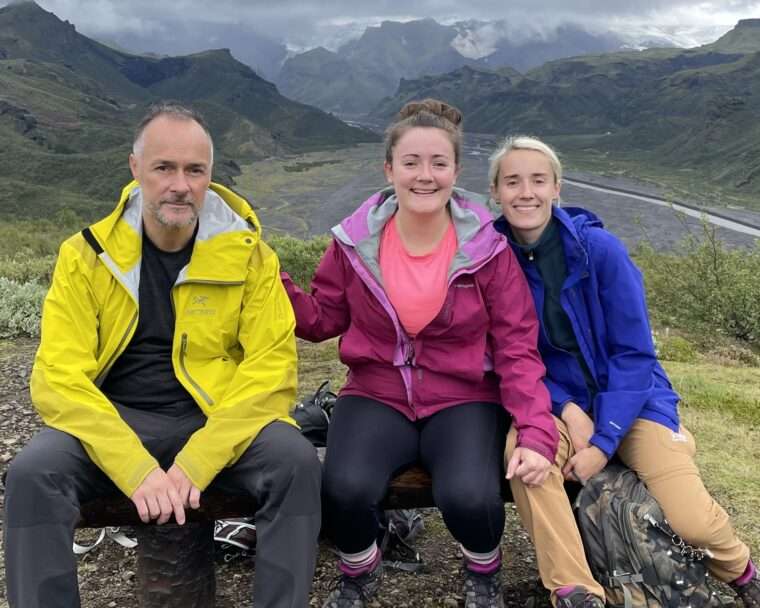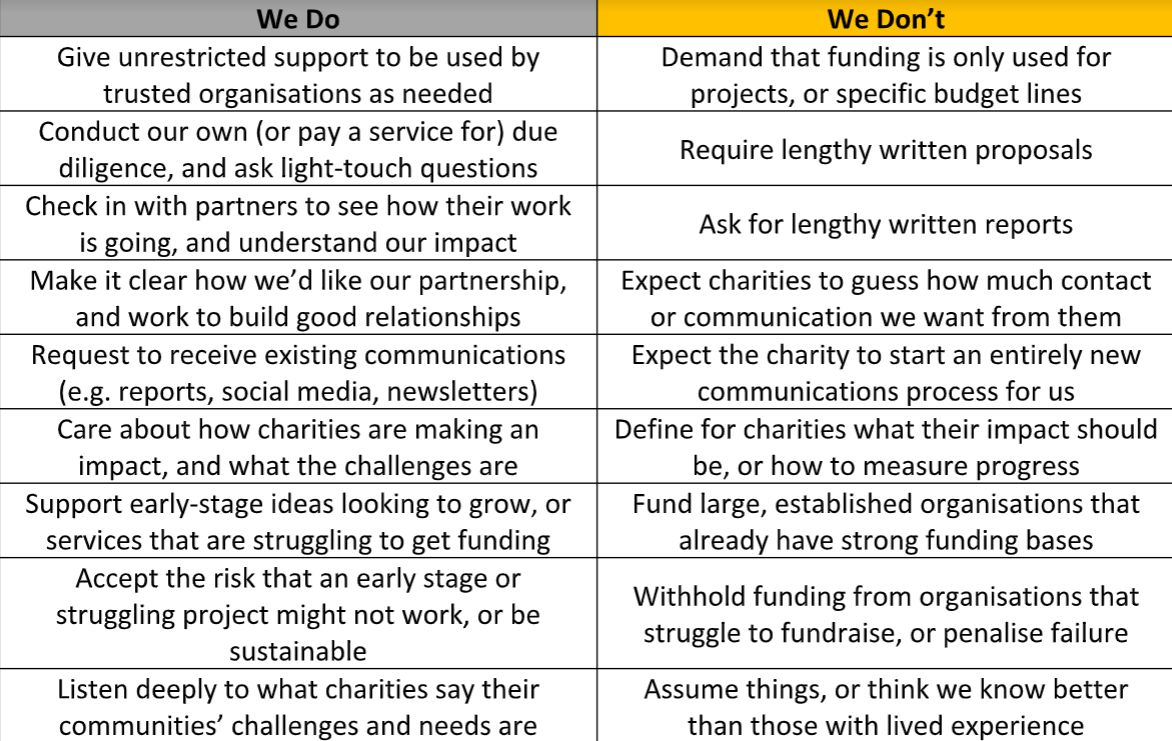By supporting writers and artists, we hope to ensure a rich and diverse cultural heritage for future generations
Philanthropists Sam and Rosie Berwick support the Early Career Bursaries for London Writers, a programme run by literature development agency Spread the Word. The programme, which is in its second year, supports three unagented, unpublished writers from underrepresented backgrounds and on a low income per year. The year the programme launched, Sam and Roise won the Achates Philanthropy Prize Individual Philanthropy Award.
There are so many incredibly important causes and amazing people in the third sector that it’s very difficult to decide on where it’s best to try and help out.
As the years have gone by, Rosie and I have focused (not exclusively) on trying to help emerging artists get the time, space and mentoring that will hopefully help them to create the art that will make us who we are for generations and centuries to come.
Books, music and the other arts are a fundamental component of human identity, not an optional luxury. They offer insights and reflections on our shared experiences. And, particularly at this present time, where so many large donors are rightly concerned with huge macro issues such as pandemics, climate change and education, the creative arts can easily slip through the gaps.
Our aim is to give artists some breathing space to think and work
Thus, our focus is now on supporting writers and composers from diverse backgrounds, who are financially constrained and often lack the resources or environments conducive to creative work.
To create is not an easy thing; and it’s virtually impossible if you have to hold down a full-time job, look after a family, or learn how to live in a new environment. Our aim is to give these artists some breathing space to think and work, and some critical friends to help them on their journey.
In this space, individuals like us can do a huge amount. As donors, we possess a unique capacity to embrace risk, supporting emerging talent and innovative projects that might not align with the conventional criteria favoured by larger organisations.
Governance in larger organisations is a critical function, but it can lead to consensus management and support for those at the least risky part of the spectrum. On the other hand, we report only to ourselves.
And although we want to make an impact and carefully evaluate the work we support, we are able to take risks and provide support where others might not. We hope that this will make sure more stories by incredible artists from marginalised communities are made and safeguard the art that we will treasure for many years to come.
We felt it was more sensible to team up with an existing organisation
But, crucially, we can’t do this on our own. Instead of using the majority of our resources to create a structure, to find and support the right artists, we felt it was far more sensible to team up and leverage an existing organisation.
This approach ensures that resources are efficiently channelled directly to the artists, maximising the impact of each contribution.
By partnering with established organisations, philanthropists can enhance their support through grants, residencies, and workshops, directly empowering artists to pursue their creative pursuits without the burden of financial worry.
In this context, we were extremely fortunate to team up with the charity Spread the Word to fund a new project.
Spread the Word is London’s literature development agency and has been running programmes for writers from underrepresented backgrounds for over twenty-five years. They run a mix of local community projects, as well as programmes to help writers get published, changing the range and breadth of stories we get to read and hear.
Based in Lewisham, South-East London, they run the Deptford Literature Festival and have an ambitious goal to establish Lewisham as the UK’s first Borough of Literature.
Working with their team we developed the Early Career Bursaries for London Writers on a low-income – a programme that supports three writers each year to develop their craft and focus on a writing project with a cash bursary and dedicated fund to support learning and development.
To be a writer in the UK is to have one of the most elite jobs. Only very recently, one of the writers that Spread the Word was able to help has had an essay published, and it made us so happy and humble to think that our programme with them gave the writer the time, space and support to write such a beautiful piece.
By supporting such artists, we hope to ensure a rich and diverse cultural heritage for future generations.
For us, the success of the Early Career Bursaries so far underscores the importance of strategic individual giving. By supporting diverse artists to create and be full-time artists, we are helping to shape who we will be as human beings.


